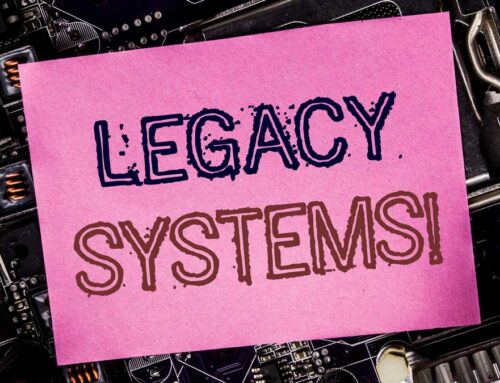
Here are a few factors that contribute to building trust with clients, especially for IT companies.
Ensure everyone is okay
This may sound like an odd piece of advice, but it’s a concept we use a lot. It’s a way to approach communication with other people that focuses on ensuring everyone feels comfortable in the interaction.
One of the biggest ways to make sure everyone is okay is to avoid jargon. And there’s plenty of jargon in the IT world! In the old days, we would walk into a meeting with a client and speak our IT language. But if they didn’t understand that IT language, we ran the risk of making the client uncomfortable.
Most people don’t want to raise their hand and admit they don’t understand something, which can lead to significant confusion down the road. By making sure we explain things in non-technical terms at every step of the process, we help our clients feel more comfortable with the interactions and with the decisions they need to make.
Put yourself in their shoes
Everyone’s professional background is a little different, even if they hold similar job titles. Some IT directors have a technical programming background but are less comfortable with other aspects of IT, whereas others are experts in network administration but less confident with certain software systems. There’s a wide range of prior experience among people in every role, and it’s important to understand where your client is coming from.
Putting yourself in their shoes also involves seeking to understand the bigger picture. What else is going on at the company or in their IT department that might create stress or concern for that IT director (or other point of contact)? Ultimately, you want to make the project and your interactions about them and not about you, so it helps to understand the bigger picture.
Communicate with transparency
I’ll admit there have been times I avoided having difficult conversations. It’s pretty natural for most people to want to avoid conflict, but sometimes you just have to handle it. Companies who work with a strategic IT partner often have large projects that are critical for the company’s success. It’s important for their IT partner to be open and honest when communicating about that project to ensure the best possible outcome.
This also includes clear communication and thoroughly explaining anything the client might not understand. By taking the time to communicate with them, they’re better able to communicate with internal audiences about the value of the project you’re working on.
If you could put a dollar figure on what companies waste due to mistrust and lack of productivity related to mistrust, it would be huge. Trust is critical! You can’t turn on a switch and immediately gain someone’s trust. There are some scenarios where trust can be built quickly, but most of the time it’s a gradual and worthwhile process.
No tags for this post.





Leave A Comment